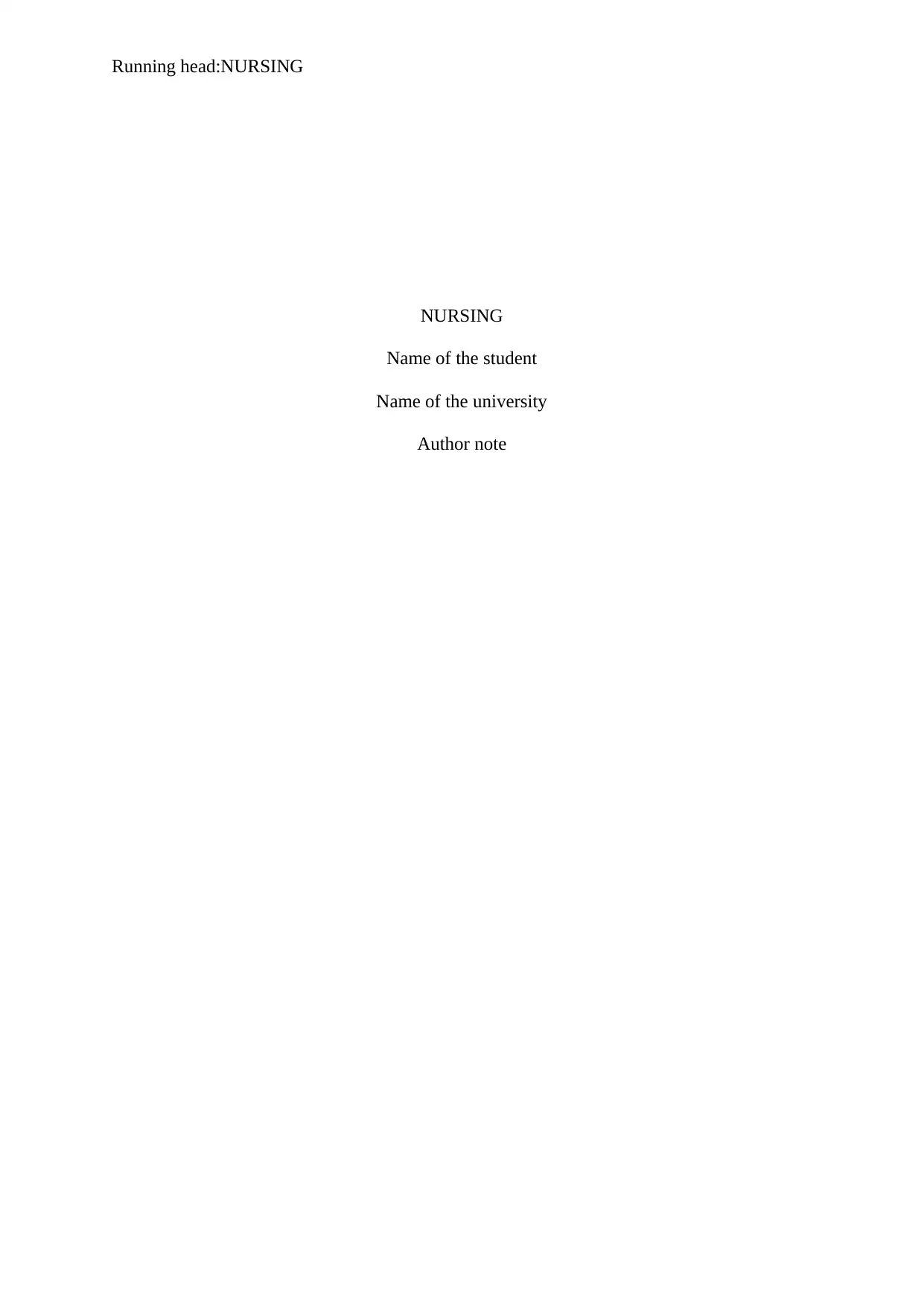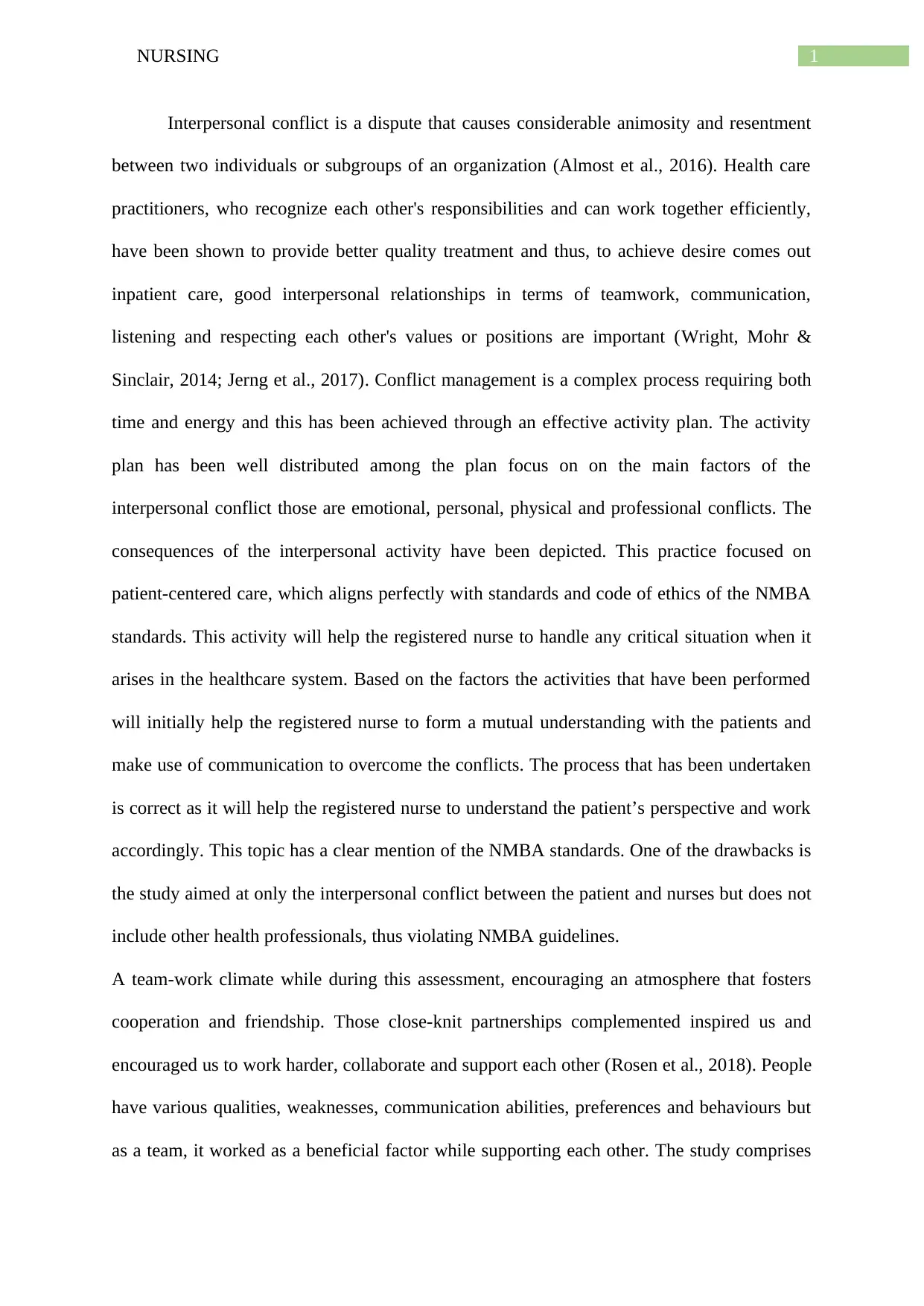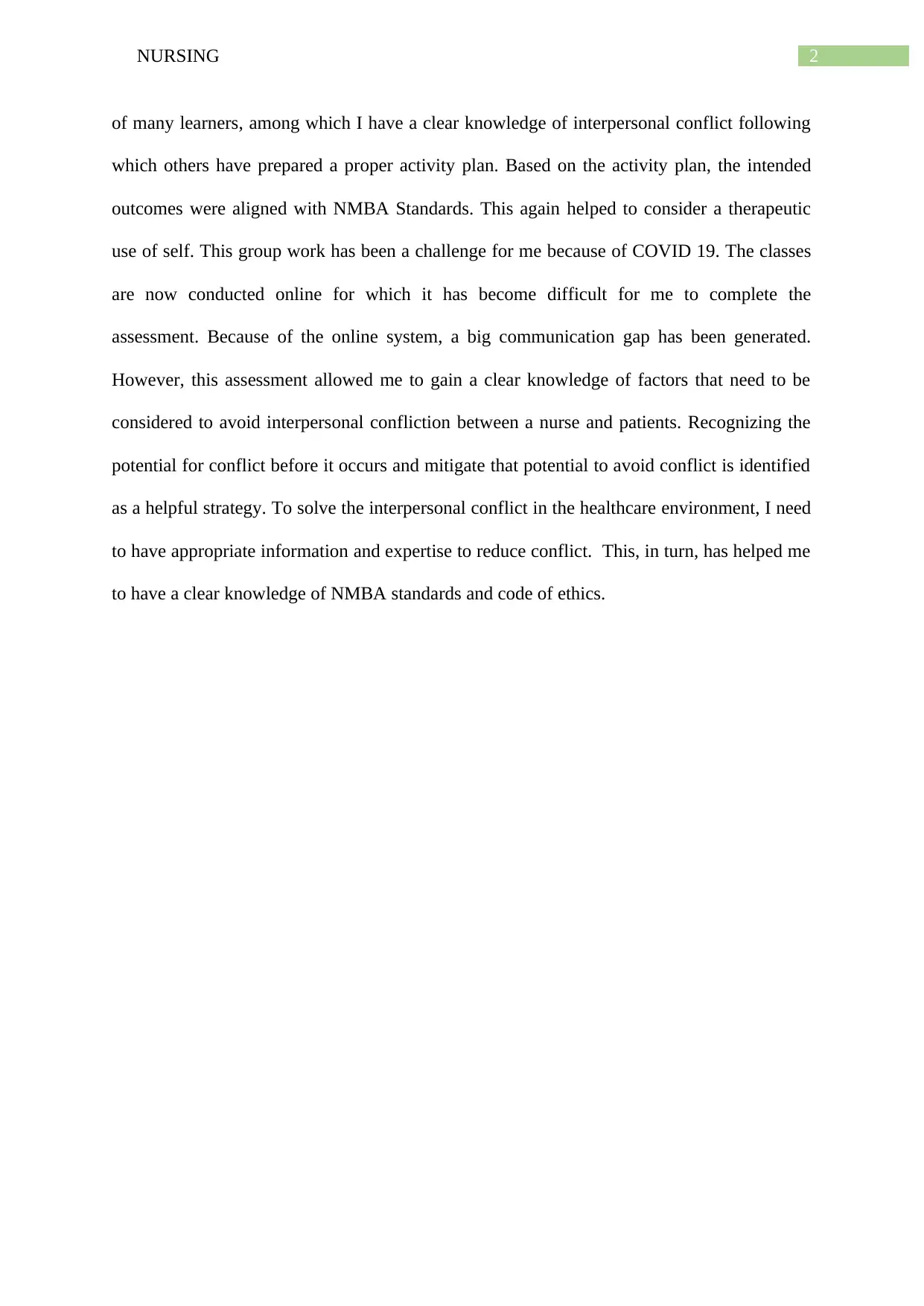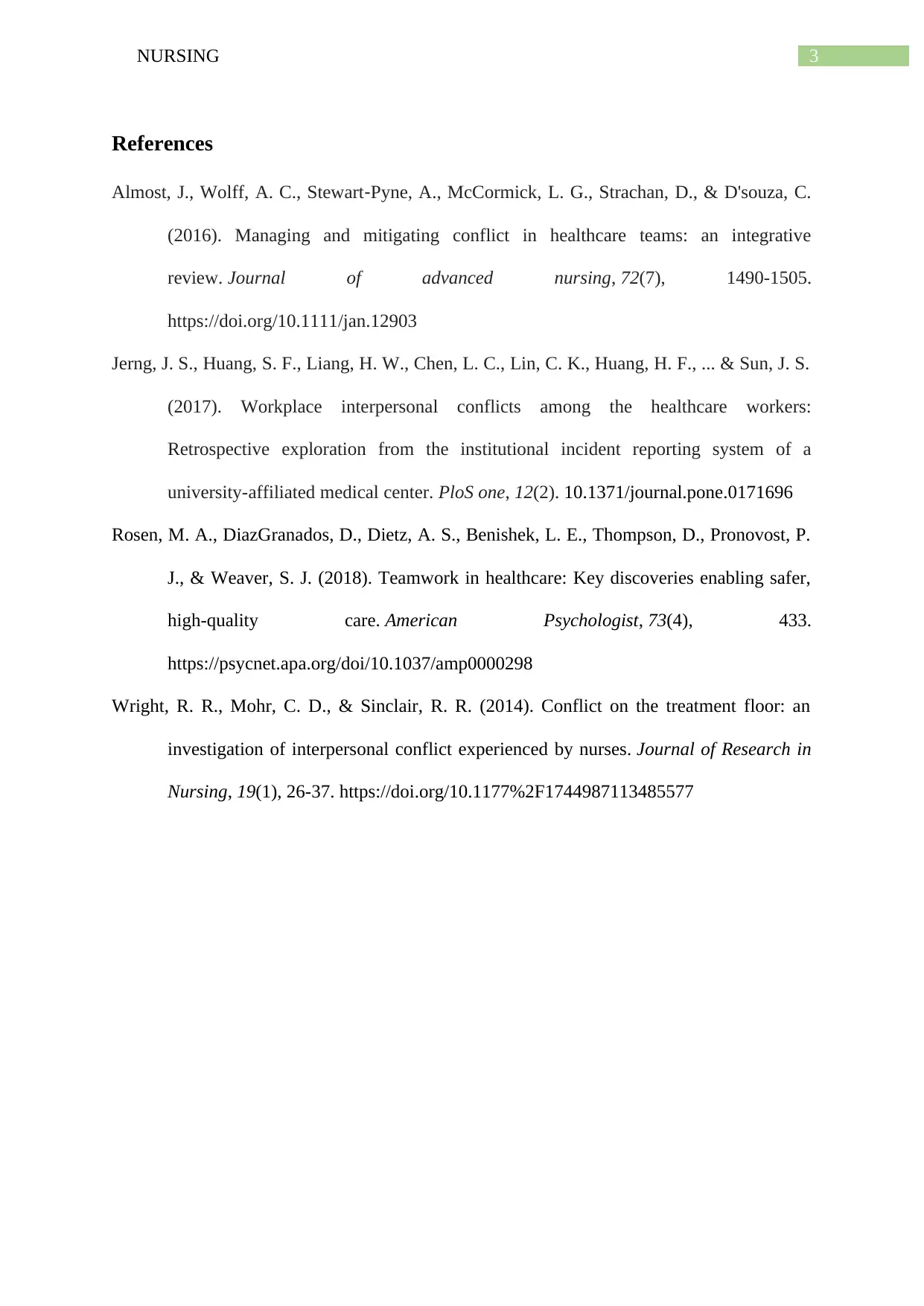NURSING 3 Report: Interpersonal Conflict and Patient Care
VerifiedAdded on 2022/08/01
|4
|828
|19
Report
AI Summary
This report delves into the complexities of interpersonal conflict within the nursing profession, examining its various facets including emotional, personal, physical, and professional conflicts. It emphasizes the importance of effective conflict management strategies and their positive impact on patient-centered care, aligning with NMBA standards and ethical codes. The report highlights the significance of teamwork, communication, and mutual respect in mitigating conflicts, while also acknowledging the challenges faced, such as those brought about by online learning environments during the COVID-19 pandemic. It stresses the need for nurses to understand conflict dynamics to enhance their ability to handle critical situations and improve patient outcomes. The report also provides a critical analysis of the study's limitations, such as the focus on nurse-patient interactions and the exclusion of other healthcare professionals, and offers insights into potential areas for improvement. Ultimately, the report underscores the importance of proactive conflict resolution to create a more supportive and effective healthcare environment.
1 out of 4











![[object Object]](/_next/static/media/star-bottom.7253800d.svg)